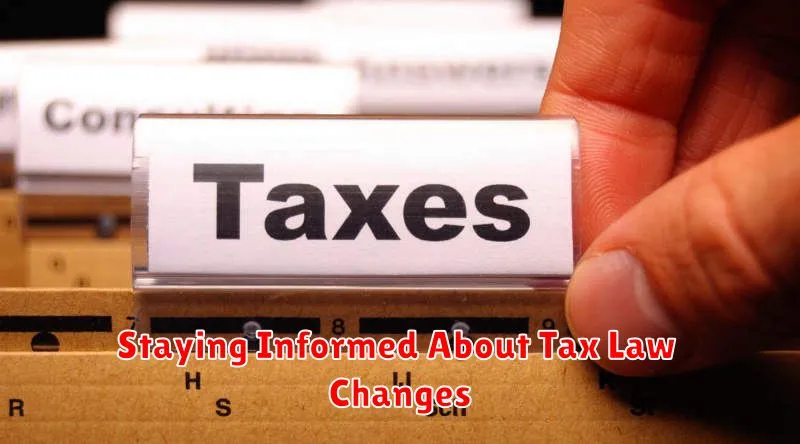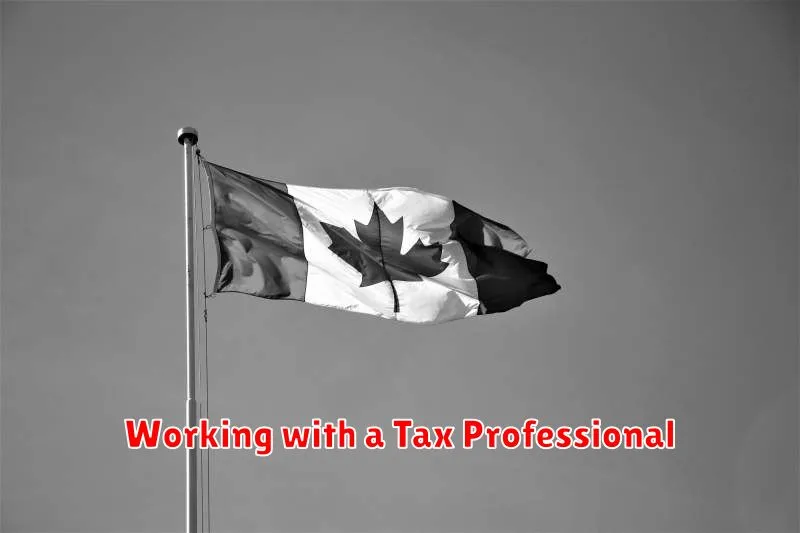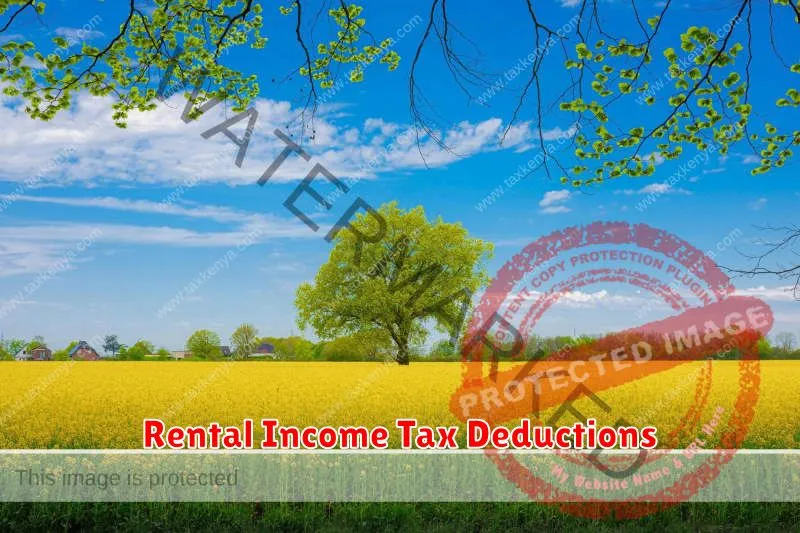Are you a landlord or property investor looking for ways to maximize your rental income? Taxes can significantly eat into your profits, but there are effective strategies you can implement to minimize your tax liability. This guide will delve into practical tips and techniques that will help you keep more of your rental income and achieve your financial goals.
From understanding the various tax deductions available to optimizing your property management, we will explore a comprehensive approach to navigating the complexities of rental property taxation. By implementing these strategies, you can gain a better understanding of how to legally reduce your tax burden and secure a more profitable investment portfolio.
Tracking and Categorizing Rental Expenses
Properly tracking and categorizing your rental expenses is crucial for maximizing your rental income and minimizing your tax liability. Accurate record-keeping ensures you claim all eligible deductions, leaving you with more money in your pocket.
Start by creating a comprehensive system to record all expenses. This could involve using a spreadsheet, dedicated accounting software, or a simple notebook. Document each expense with its date, amount, and a clear description.
Categorizing your expenses is just as important as tracking them. The IRS classifies rental expenses into various categories, including:
- Advertising expenses: Costs associated with marketing your rental property, such as online listings and newspaper ads.
- Insurance: Coverage for your property, including liability and hazard insurance.
- Maintenance and repairs: Costs incurred to keep your rental property in good condition, like plumbing repairs or landscaping.
- Property taxes: Taxes levied on your rental property by local authorities.
- Mortgage interest: Interest payments on any loans secured against your rental property.
- Depreciation: A non-cash expense that allows you to deduct a portion of your property’s value over time.
By meticulously tracking and categorizing your rental expenses, you will be able to accurately claim deductions on your tax returns. This ensures you are maximizing your rental income and keeping more of your hard-earned money.
Maximizing Deductions: Mortgage Interest, Property Taxes, and More
One of the most significant ways to lower your rental income tax liability is by claiming deductions. Among the most valuable deductions are those related to your rental property, including mortgage interest and property taxes. These expenses are directly tied to owning and maintaining your rental property and can significantly reduce your taxable income.
Mortgage Interest: The interest you pay on a mortgage for your rental property is a deductible expense. This can be a substantial deduction, especially in the early years of your mortgage when the interest portion of your payments is higher.
Property Taxes: Property taxes are also deductible. These are taxes levied by local governments on the value of your property. You can deduct property taxes paid on both the land and the building itself.
Beyond mortgage interest and property taxes, there are other deductions that can help you maximize your savings:
- Insurance Premiums: You can deduct premiums for insurance policies related to your rental property, including hazard insurance, liability insurance, and landlord insurance.
- Repairs and Maintenance: Expenses incurred for repairs and maintenance of your rental property are also deductible. This includes costs for plumbing, electrical work, painting, landscaping, and more.
- Depreciation: While not an actual cash expense, depreciation is a valuable deduction that allows you to gradually deduct the cost of your rental property over its useful life. This deduction can be significant and helps to offset your income.
Remember, it’s crucial to keep accurate records of all your expenses. Maintaining a thorough log of your income and expenses will help you ensure you’re claiming all eligible deductions and maximizing your tax savings.
Depreciating Your Rental Property for Tax Benefits

One of the most significant tax advantages of owning rental property lies in the ability to depreciate its value over time. Depreciation is a non-cash expense that allows you to deduct a portion of your property’s value each year, reducing your taxable income and ultimately lowering your tax liability.
Depreciation is calculated based on the useful life of your property. The Internal Revenue Service (IRS) assigns a standard useful life for different types of property, and for residential rental properties, it’s typically 27.5 years. This means you can deduct 1/27.5th of your property’s value each year for tax purposes. For example, if your property is valued at $200,000, your annual depreciation deduction would be approximately $7,273.
It’s important to note that depreciation only applies to the building itself, not the land. You’ll need to allocate the purchase price between the land and the building to determine the depreciable value. It’s also crucial to understand that depreciation is a non-cash expense, meaning it doesn’t represent an actual decrease in the property’s value. It’s simply a way to recognize the gradual wear and tear on your property for tax purposes.
Depreciating your rental property can significantly reduce your tax burden, allowing you to keep more of your rental income. By taking advantage of this tax benefit, you can maximize your investment returns and build a more profitable rental portfolio.
Taking Advantage of Home Office Deductions
Landlords can deduct a portion of their home expenses when they use a part of their home for business purposes. This includes rental property management, which is considered a business activity. To qualify, your home office must be used regularly and exclusively for rental property business activities.
This deduction can be claimed in two ways:
- Actual Expenses: This method allows you to deduct actual expenses related to your home office, such as utilities, insurance, mortgage interest, property taxes, and repairs. You’ll need to calculate the percentage of your home used for rental business activities.
- Simplified Method: This method offers a simpler approach, where you can deduct $5 per square foot of home office space, up to a maximum of 300 square feet. This method can be beneficial if you have minimal home office expenses or find the actual expenses method too complex.
To maximize this deduction, keep thorough records of your home office expenses, including receipts and documentation. Remember to consult with a tax professional to determine the most advantageous deduction method for your specific circumstances. By utilizing this deduction, you can effectively reduce your taxable income and retain more of your hard-earned rental income.
The QBI Deduction for Real Estate Investors
The Qualified Business Income (QBI) deduction, introduced by the Tax Cuts and Jobs Act of 2017, can provide significant tax savings for real estate investors. This deduction allows you to deduct up to 20% of your qualified business income, which includes income from rental properties. To be eligible for the QBI deduction, you must meet certain requirements, including owning a pass-through entity such as a sole proprietorship, partnership, LLC, or S corporation.
To calculate the QBI deduction, you need to determine your qualified business income and the applicable deduction limit. The deduction is capped at the lesser of 20% of QBI or 20% of your taxable income. The QBI deduction can be claimed on Schedule K-1 of your Form 1040. It’s important to note that the QBI deduction is subject to certain limitations, including income thresholds and phase-outs. For example, if your taxable income exceeds certain levels, the deduction may be reduced or eliminated entirely.
The QBI deduction can be a powerful tool for real estate investors to minimize their tax liability. By understanding the requirements and limitations of this deduction, you can potentially reduce your tax burden and keep more of your rental income.
Tax Benefits of Long-Term vs. Short-Term Rentals
Understanding the tax implications of different rental strategies is crucial for maximizing your rental income. While both long-term and short-term rentals offer unique benefits, their tax structures differ significantly.
Long-term rentals, typically defined as leases lasting a year or more, generally provide greater tax advantages. You can deduct expenses such as mortgage interest, property taxes, insurance, repairs, and depreciation. These deductions can significantly reduce your taxable income and lower your tax liability.
Short-term rentals, including platforms like Airbnb and VRBO, offer flexibility but come with different tax considerations. You may be able to deduct similar expenses as long-term rentals, but you’ll also face additional taxes like sales tax and occupancy tax depending on your location.
The key difference lies in depreciation. With long-term rentals, you can depreciate the value of your property over time, reducing your taxable income. However, short-term rentals are often excluded from depreciation deductions due to their shorter rental periods.
Ultimately, the optimal strategy depends on your individual circumstances and goals. Consulting a tax professional is highly recommended to navigate the complexities of both options and determine the best approach for maximizing your rental income and minimizing your tax burden.
Strategies for Avoiding Capital Gains Tax
When you sell a rental property, you’ll likely face capital gains tax. This tax is calculated on the profit you make from the sale, which is the difference between the selling price and your original purchase price, plus any improvements you made. Fortunately, there are strategies you can use to minimize this tax burden.
One common strategy is to utilize the 1031 exchange. This allows you to defer capital gains tax by reinvesting the proceeds from the sale into a similar property of equal or greater value. This exchange essentially allows you to roll over your investment into a new property, avoiding the tax on the profit.
Another approach is to consider depreciation. As a landlord, you can deduct a portion of the cost of your rental property each year. This reduces your taxable income and thus, your capital gains tax liability when you sell.
If you plan to hold your rental property for a longer term, consider holding it for more than a year. Capital gains tax rates are lower for long-term investments (held for over a year) compared to short-term investments (held for less than a year).
Finally, you can use tax-loss harvesting to offset your capital gains. This involves selling losing investments to create capital losses. These losses can then be used to offset your capital gains, reducing your overall tax liability.
Forming an LLC for Tax Advantages
One of the most effective strategies for minimizing taxes on rental income is forming a Limited Liability Company (LLC). An LLC provides a legal shield that separates your personal assets from the business’s liabilities. This means that if your rental property faces lawsuits or financial difficulties, your personal assets are protected.
Beyond liability protection, an LLC offers significant tax benefits. You can choose to be taxed as a sole proprietorship or a partnership, allowing you to avoid the double taxation that corporations face (corporate income tax and individual income tax). This means you pay taxes on your rental income only once, as part of your personal income tax return.
Staying Informed About Tax Law Changes

Rental property tax laws are constantly evolving, and staying up-to-date on these changes is crucial for maximizing your rental income. Tax law changes can impact everything from deductions to tax rates, so it’s essential to be informed.
One of the most effective ways to stay informed is to subscribe to reputable tax and real estate news sources. These sources can provide updates on legislation, regulations, and court decisions that may affect your rental property.
Joining professional organizations like the National Association of Realtors (NAR) or the National Rental Home Council can also keep you informed. These organizations offer resources, webinars, and conferences focused on tax law changes and other industry trends.
It’s essential to consult with a qualified tax professional to ensure you understand the latest tax laws and how they apply to your rental property. A tax professional can help you identify potential deductions, optimize your tax strategy, and avoid penalties.
By staying informed about tax law changes, you can make strategic decisions that help you keep more of your rental income. This includes understanding the latest deductions available, adjusting your rental strategy to comply with new regulations, and taking advantage of any beneficial tax changes.
Working with a Tax Professional

While you can certainly learn about the intricacies of rental property tax deductions and credits yourself, enlisting the help of a qualified tax professional can be immensely beneficial. A tax professional can help you:
- Identify all eligible deductions and credits: They have the expertise to unearth every applicable deduction and credit, ensuring you maximize your tax savings.
- Optimize your rental property structure: A tax professional can advise on the most advantageous way to structure your rental property ownership, whether as an individual, partnership, or LLC, to potentially minimize your tax liability.
- Stay compliant with tax laws: The ever-changing landscape of tax regulations can be confusing. A tax professional ensures you stay on top of the latest requirements and avoid any potential penalties.
- Strategize for future tax years: By working with a professional, you can plan your rental property investments to minimize your tax burden in the years to come.
Remember, choosing the right tax professional is essential. Look for someone with experience in rental property taxation and who understands the nuances of your specific situation.

